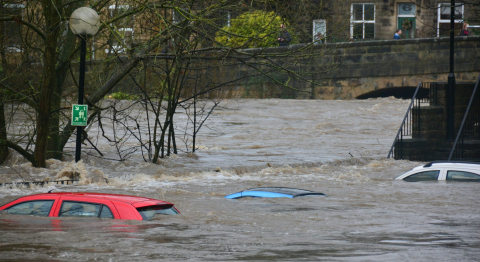Verkiezingskoorts: de krantenkoppen van donderdag
Presidentskandidaat Medvedev hoopt de demografische crisis in Rusland in de komende 3 à 4 jaar te kunnen aanpakken. Dat, en meer nieuws, leest u hieronder in een bundeling van de belangrijkste Russische headlines van de dag.
Vedomosti covers Dmitry Medvedev’s address to the recent session of the Council for National Priority Projects and Demography. The first deputy prime minister is determined to tackle the demographic crisis in 3 to 4 years. It’s vitally important to stabilize and eventually to speed up the growth of the Russian population. Reducing death in active working age and creating conditions for a long and healthy life are the necessary steps on the way to the ultimate goal. Medevedev referred to accomplishments in medicine and health care systems of developed countries that enable old people to lead an active life.
Promoting child birth and improving state supported maternity care remain priorities number one. This year has been proclaimed the Year of the Family, which is supposed to attract attention to this problem. Medvedev emphasized that the regions are being actively involved in this work.
The air time on leading Russian TV-channels has been equal for every presidential candidate. That is the verdict of two district courts of Moscow, Kommersant reports. Both courts rejected the complaint of presidential candidate Gennady Zuganov, who said he had not had received enough air time. According to Zuganov, Dmitry Medvedev would have received more air time than the other candidates, and that was actually the reason of Zuganov’s complaint. To back his claims, Communist party leader Zuganov made reference to the Center for Russian Political Culture Studies. According to this organization, the air time in February 2008 was divided as follows: 50 per cent for Medvedev, 21 per cent for Zuganov, 18 per cent for Zhirinovsky and 11 per cent for Bogdanov.
According to The Voice of Russia information bureau, more than 2000 Russian and foreign journalists are expected to cover the Russian elections on March 2. The Central Election Commission intends to provide media with information about the course of events and later about preliminary results every hour. For the first time ever, the canvasser will reflect the amount of votes that each candidate manages to gather. The official results will be published on March 7, according to the head of Central Election Commission, Vladimir Churov. He also added that preliminary results will be announced on March 3 at 10:00h.
The head of the Central Election Commission, Vladimir Churov, admonished observers from the Parliamentary Assembly of the Council of Europe (PACE), whose early comments on the presidential campaign could be considered as an intervention in the domestic affairs of the country. On Thursday, some media published a kind of premature observation with reference to the head of the PACE-mission. According to the Russian legal system, it is unacceptable to affect the constituent body. The main purpose of any mission is just to observe, without an intervention in the domestic affairs of the country, Vladimir Churov declared to the official Russian News and Information Agency (Novosti) during a press conference.
Gazeta states that the new president of Russia is sure to face far more complex economic tasks than those Vladimir Putin had to deal with in 2000. These problems are inflation and world financial crisis, corruption, social stratification, unfinished reforms and national priority projects. The settlement of these issues is highly possible provided that oil prices continue to rise. Oil is widely seen as the pivotal reason for the progress accomplished under Putin.
Education, health care and demography should remain key priorities for the new head of state. A special place on the agenda is reserved for the number of unfinished reforms. Some analysts say that since 2007 not a single reform has been successfully completed. Tax reform, budget policy, workplace relations reform and stock market development can hardly be called positive. On the other side, pension, housing and administration reforms have simply failed. All the issues mentioned above represent a serious challenge for the new president to come.
The daily online newspaper Utro.ru reports that as of February 26, the publishing of any surveys and opinion polls linked with the upcoming elections is banned according to the federal presidential elections law. The restrictions will be in effect until March 2, 21:00h. By this time, all the polling stations in the territory of Russia will close. Apart from traditional media, the ban also applies to the internet. Such measures are aimed at ruling out any possibility of bringing influence on the people’s freedom of choice.
For recent months, leading Russian organizations have been publishing lots of surveys on voter turnout and election results. Certain law violations were discovered by the Central Elections Commission. Some polls didn’t contain necessary information like the exact date of the survey, the number of respondents and the statistical error rate.
Maak MO* mee mogelijk.
Word proMO* net als 2790 andere lezers en maak MO* mee mogelijk. Zo blijven al onze verhalen gratis online beschikbaar voor iédereen.
Meer verhalen
-
Nieuws
-
Interview
-
Commentaar
-
Nieuws
-
Analyse
-
Nieuws










 Oxfam België
Oxfam België Handicap International
Handicap International